- Home
- Patrick Logan
System Update
System Update Read online
SYSTEM
UPDATE
PATRICK
LOGAN
This book is a work of fiction. Names, characters, places, and incidents in this book are either entirely imaginary or are used fictitiously. Any resemblance to actual people, living or dead, or of places, events, or locales is entirely coincidental.
Copyright © Patrick Logan 2015
Cover design, interior design © Patrick Logan 2015
All rights reserved.
This book, or parts thereof, cannot be reproduced, scanned, or disseminated in any print or electronic form.
Second Edition: December 2015
Other Books by Patrick Logan
Insatiable Series
Skin (Insatiable Book 1)
The Crackers (Insatiable Book 2)
Flesh (Insatiable Book 3)
Stand-Alone Novels
Worm*
*Available December, 2015
Short Stories
System Update
Sign-up to my no spam newsletter at www.PTLBooks.com to receive FREE books!
MONDAY
“Good morning, Ian,” the doctor said in a pleasant voice.
“Morning, Doctor.”
“How did you sleep last night?”
“Shitty,” Ian began, averting his eyes briefly before turning them back to the monitor. “Had the dream again.”
The doctor had a thick, oak-colored mustache, which was only slightly darker than the soft, thinning hair that was combed neatly atop his head. His soft hazel eyes didn’t flinch at Ian’s comment.
“I told you I can refer you to someone if you would like to learn more about your dream,” the doctor informed him.
“And I have told you, Doctor, that I don’t want to talk to anyone about the dream,” Ian replied gruffly. Then, after a short pause, he added, “Let’s just get on with it.”
Ian yawned, stretching one hand above his head while using the other to attack an itch just below his chin. His nails made a scratching sound as they rubbed at the day-old stubble, a sound not unlike separating worn Velcro.
Like with his previous comment, the doctor ignored him and looked down, presumably to glance at a document on his desk, but Ian could not be sure as the monitor only showed his face.
“Okay, then, Mr. Stardon,” the doctor began more formally without raising his gaze, “please disrobe and stand in the center.”
Ian hated when the doctor asked him to disrobe; as a man of advanced age, Ian was by no means coy or insecure, but he never wore a robe.
Is this 1984? Who still wears a robe?
With a scowl, he began unbuttoning and removing his pajamas before putting them on the small bench from which he had just arisen.
The doctor, apparently done reading whatever document had drawn his attention, raised his eyes back to meet Ian’s.
“Please take a deep breath and try your best to remain still.”
Ian inhaled deeply, feeling a slight burning sensation in his throat as he did. He stood completely still, hands pressed to the outside of his naked thighs, and stared back at the doctor’s face on the monitor.
“Okay, Ian, this will only take a moment,” the man informed him, once again turning his eyes downward.
This part always made Ian a bit uncomfortable, and it took all of his willpower to resist fidgeting. He knew that what he was feeling was irrational, considering the thousands of times he had been scanned before, but this knowledge offered him little solace. When he felt the air start to move on either side of him, he closed his eyes slowly, only opening them after the air had once again settled.
“You can sit down again,” the doctor said calmly.
Ian opened his eyes and looked around briefly. He stood in the center of his capsule, a gazebo-like enclosure that came to a peak about a foot and a half above his head. The interior of the capsule was a matte silver, the hermetical smoothness only broken by the monitors that hung at eye level when he stood. Two monitors lined the curved interior, flanking a center screen, which displayed the doctor’s face. Before the scan, the two side monitors had been dim, with only a slightly perceptible backlight indicating that they were in fact on. Now that the scan was complete, he knew that it would only be a moment before they erupted with data and images.
I should have kept my eyes closed, he thought, preparing to be overwhelmed.
Both the left and right sides of the capsule were open, the passages offering just enough headroom for Ian to walk through without ducking, but the top of the capsule was enclosed, the interior rounded like the inside of a battalion helmet. The very first time the doctor had pressed a button, or had performed whatever magic he needed to make the scan start, Ian had caught a glimpse of the two scanning arms as they rotated from behind the capsule and simultaneously passed by the doorways before returning to their resting position at the rear. At the ends of each of these arms was a reflective black rectangle that reminded Ian of vertical solar panels. He still remembered how, the first time he had been scanned in his capsule—how long had it been now? Five years? Six?—he had ignorantly expected some minor pain, vibration, heat, something, anything as the arms passed by the doorways and analyzed his exposed, naked flesh. Now, of course, he knew better; like nearly everything involving the capsule, the scan was silent, painless, and incredibly brief.
“Please sit, Ian,” the doctor repeated.
Ian complied, grateful when his bare buttocks inadvertently came to rest on his heaped pajamas, insulating him from the cold bench that jutted out from the smooth interior of the capsule.
An image suddenly appeared on the monitor to the right of the doctor’s face: an outline of Ian’s body as he had stood just moments ago. The monitor, which was only about a foot and a half tall and about half as wide, had such high resolution that Ian could recognize that had been balling his fists during the scan; he could see the iridescent white of his finger bones digging into his palms. As he watched, his bones faded to a dull grey, and the previously dark internal cavity of his body was replaced by a detailed heat map. Although the outline of his head was cool, reflected by the light aqua hues, the central part of his body was different: his chest—his lungs—was a definite greenish-blue, with a tendency toward the former.
“My lungs are green again, Doctor,” Ian noted, the pitch of his voice rising slightly. He felt a sudden tightness in his chest, and he coughed twice in an attempt to alleviate the pressure.
“They are always green, Ian,” the doctor replied. He must have put his glasses on while Ian was assessing his image on the monitor, because he was now peering over the lenses and down the bridge of his nose at him.
“Yeah, but they’re more green,” Ian said, regaining his composure.
The doctor’s head moved away from the camera as he leaned back, and Ian imagined that his hands were probably clasped somewhere off-screen.
“They are the same as before, Ian. Look at the monitor on your left.”
Ian did as he was asked, noting his heartrate and blood pressure vitals as well as a static EKG reading. Out of his periphery, he saw the doctor lean forward again and the onscreen image suddenly changed. A black-and-white scatterplot appeared on a three-dimensional graph. It looked to Ian like his vitals had been replaced by a stock image of deep space.
“What you are seeing are the three-dimensional color vectors of the past two months’ worth of lung scans. You see how they are all clustered on the same plane?”
The thick lines around Ian’s nose and mouth deepened; he knew nothing of three-dimensional color vectors. Sensing his confusion, the doctor instructed him to continue watching the screen.
The graph suddenly transitioned into a much simpler two-dimensional representation, with prominent x and y axes. The dots s
lid about for a moment, as if rotating around the imaginary galaxy, before settling in a more understandable left to right array.
“Now you see? Here I have isolated the green color intensity, and today is well within the normal range.”
Ian squinted still trying to understand the image on the screen.
“Normal? What do you mean by normal?” he asked.
Ian looked over at the doctor’s monitor and noticed that the video stream had momentarily frozen. He rolled his eyes.
Come on.
After a few seconds, the doctor reanimated, and the man with the thick mustache removed his spectacles.
“The spectral values don’t matter, Ian; what matters is that they don’t change dramatically from day to day.” The doctor paused for a moment, then added, “Don’t worry, the cancer’s not back.”
Ian frowned. He wasn’t particularly fond of the doctor’s condescending tone. He coughed again, this time making no effort to stifle it.
“What about my liver?”
The doctor leaned forward again, presumably flicking more hidden dials and switches. A rectangle appeared in the abdomen of Ian’s outline, and the image zoomed into that area. Although mostly blue, to his untrained eye there appeared to be some green spotting on the right side.
“The green spots are back, Doctor,” he said hesitantly, the annoyance fading from his voice.
“No, Ian, they are not back; they never left. Your liver is the same as it was yesterday and the day before.” The doctor glanced down and to his left. “And your vitals all look good. Everything is fine.”
Ian shook his head, unconvinced. He stood, turned, and began getting dressed. As he bent to put on his bottoms, he smiled wryly, realizing the view he was offering the doctor.
Disrobe—I’ll show you disrobe.
Then he remembered the sprinkling of green in his liver, and his mood faded.
“I don’t think so, doc. This looks different; I feel different.” He paused. “I want a second opinion.”
“Ian, you always want a second opinion,” the doctor said, almost sounding annoyed. “Please hold for a moment.”
Ian turned just in time to catch the doctor’s blank expression before the image blinked out and another face replaced his.
TUESDAY
“Good morning, Ian,” the doctor said.
“Morning,” Ian replied as he sat on the bench. He began unbuttoning his top, but his fingers felt swollen and fat with fatigue; the process took longer than it should have, and the doctor evidently took notice.
“How did you sleep last night?”
“Terribly.”
“Was it—?”
Ian cut the doctor off.
“Yes, it was the dream, it’s always the dream. And, no, I don’t want to talk about it,” he said hastily, finally managing to remove his pajama top.
“I can recomm—”
Ian rolled his eyes and cut the doctor off once again.
“I’ve told you a thousand times already, I don’t want to talk to anyone about it. Jesus, doc, it’s always the same with you.”
Mildly ashamed at his harsh tone, Ian averted his eyes from the doctor’s, and attributed his brevity to his lack of sleep. As if to convince the doctor of this, he yawned, but just as he reached the satisfactory peak, he was interrupted by a sudden desire to cough, to which he succumbed.
“Okay, Ian,” the doctor replied calmly, and then he too averted his gaze and looked downward. “It’s Tuesday; you know what that means. I’ll turn off the monitor for privacy; just call for me when you are done.”
Ian nodded; he had forgotten it was Tuesday.
What happened to Monday? Sunday?
The monitor went dark, and Ian shook his head. Each day seemed to melt into the next, like rain drops on a window coalescing into a single stream. He turned to his right and waited. After a moment, a small panel, the outline of which had been previously indiscernible from the smooth interior of the capsule, opened and a small funnel extended from within. Ian turned his body and peed into the funnel, noting that the stream seemed a darker yellow than usual. Another cough helped him get the last few drops out—although, truth be told, it was more to ensure that none of the urine dripped on the smooth metal floor than to provide extra piss to sample. He wondered briefly why his capsule, for all of its technological wizardry, was incapable of cleaning itself.
“All right, doc, I’m done,” Ian said, pulling his pajamas pants all the way down and removing them instead of pulling them up. It unnerved him that he was expected to stand in front of the monitor completely nude and exposed and yet the doctor insisted on turning off the monitor when he peed.
The monitor flicked on, and the doctor returned, sans spectacles this time.
“Are you ready for the scan?” the doctor asked.
Ian nodded.
When the scan was done, Ian moved toward the front of the capsule, leaning in close to the screen to scrutinize his outline.
“More green today, doc. And there are some more spots here,” he said, pointing to his liver.
“I can’t see where you are pointing, Ian,” the doctor said calmly.
It was true, of course. He often forgot that the doctor wasn’t standing in front of him—a relic of times past—and only had a small viewing angle extending from the monitor.
Actually, Ian thought abruptly, I don’t know even where the camera is in here.
He looked around cautiously, curious as to why this thought had never occurred to him before.
“Doc,” he began, “where—?”
But this time, it was the doctor’s turn to cut him off.
“Your urine is fine,” he said, his eyes moving from his papers to the screen. “You can see for yourself on your left.”
The doctor indicated the appropriate monitor with a slight head nod.
Ian frowned.
I am not so old that I don’t know my rights from lefts, doc.
There were two columns onscreen: the one on the right housed a list of items, while the left was filled with values. Ian took note of the first three: color, light yellow, odor, nutty, and specific gravity, 1.020. All three values were green, indicating, as the doctor had so patronizingly informed him moments ago, that they were indeed normal.
“Doc,” Ian began, scratching at his still unshaven chin, “how can you tell what color my urine is? I mean, the monitor was off…”
The doctor put his spectacles back on and looked at something in his hands, apparently disinterested.
“Spectrophotometry,” he said flatly.
And the smell? Do you smell my pee, doc?
The thought brought a grin to his lips, but the foreign expression stopped short of a full smile—his throat suddenly started to itch and he felt nauseous.
“I think I am getting sick again,” he said quietly, as much to himself as to the doctor. “My throat is raw and my stomach’s queasy.”
The doctor looked up.
“Well, everything looks normal on the scan, and your urine is normal.”
“But what about the green?”
“What green?” the doctor asked.
“The green dots,” Ian answered sharply, now adding irritation to his growing list of symptoms.
How am I tired? I just woke up.
He turned to the monitor on his right and pressed his face as close as possible before his eyes started to cross and his vision blurred.
“Your values are within the normal ranges, Ian. Would you like me to take a closer look at your throat and stomach?”
“No, but I want a second opinion about the dots,” Ian answered, tapping his index finger on the monitor.
“Of course you do. Just one moment, please.”
WEDNESDAY
“It’s Wednesday, Ian,” the doctor informed him in his usual pleasant, albeit flat tone.
Wednesday? What the hell happened to Tuesday?
Ian felt worse today. He was lightheaded and his throat hurt, but now his nose
was runny as well. In fact, everything on his face felt moist, including his eyes. Everything, that is, except for his lips; they felt extremely dry, and when he ran his tongue across the coarse surface, it skipped along like the back of a thick slug that had been left in the sun for just a little too long.
“Doc, I feel worse,” Ian said, and then, as if to make his point, he coughed. A thick wad of saliva entered his mouth, and he quickly glanced around for a place to spit; but—of course—the only receptacles in the capsule were hidden somewhere behind those smooth walls. His face twisting, Ian swished the wad around in his mouth, crushed it with his molars, and swallowed. It felt a little like trying to squeeze a jelly bean down a straw.
“Well, it is Wednesday, so we’ll see if anything turns up on your blood test. Please sit on the bench and remove your shirt.”
Ian did as he was instructed, blinking rapidly in an attempt to dry the moisture that was blurring his vision.
“Please lay your right wrist palm-up on the armrest.”
Once again, Ian obliged.
He acts like this is my first rodeo.
He felt a warming sensation on his bicep, and turned in time to see the needle suspended from the robotic arm pierce the inside of his elbow and began drawing blood. This process—first the appearance of the arm from God knows where, and then the movement of the needle—was silent, and whatever was drawing the thin stream of blood into the transparent tube gave no indication of how it functioned. A few moments later, the tube went clear and the needle retracted. There was a small burning sensation as the pin exited, but there was no blood on the surface.
The needle cauterizes the wound on the way out, he recalled the doctor telling him.
Ian watched with great interest as the robotic arm smoothly, almost seductively, articulated back into the panel on the rear wall. He could only see inside the panel a few inches as there was another wall behind the first, and as he watched, the robotic arm disappeared through a hole in the second wall. The panel closed immediately once the arm was fully inside the panel—another secretive, silent, annoying process that gave no indication of how it actually worked.

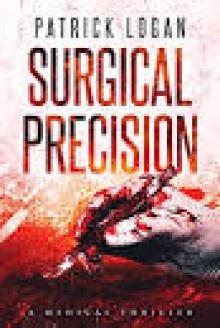 Surgical Precision
Surgical Precision Detective Damien Drake series Box Set 1
Detective Damien Drake series Box Set 1 Drug Lord- Part I
Drug Lord- Part I Georgina's Story
Georgina's Story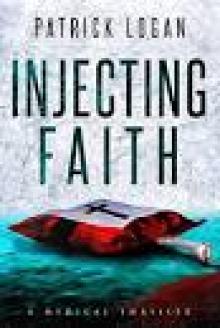 Injecting Faith
Injecting Faith Drug Lord- Part II
Drug Lord- Part II Dirty Money (A Chase Adams FBI Thriller Book 5)
Dirty Money (A Chase Adams FBI Thriller Book 5) Detective Damien Drake series Box Set 2
Detective Damien Drake series Box Set 2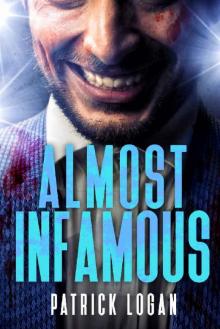 Almost Infamous (Detective Damien Drake Book 9)
Almost Infamous (Detective Damien Drake Book 9)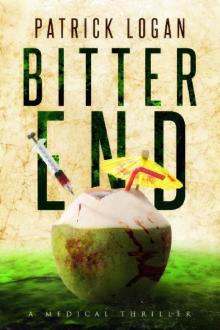 Bitter End
Bitter End Shadow Suspect
Shadow Suspect Witch
Witch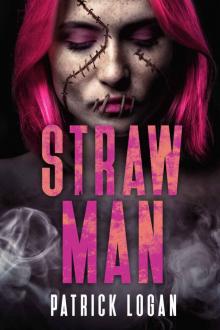 Straw Man
Straw Man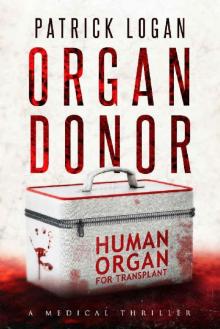 Organ Donor: A Medical Thriller (Dr. Beckett Campbell, Medical Examiner Book 1)
Organ Donor: A Medical Thriller (Dr. Beckett Campbell, Medical Examiner Book 1) Shores of the Marrow
Shores of the Marrow Skeleton King
Skeleton King Insatiable Series Omnibus Edition (Books 1-3)
Insatiable Series Omnibus Edition (Books 1-3) Download Murder
Download Murder Amber Alert
Amber Alert Human Traffic
Human Traffic Drawing Dead (A Chase Adams FBI Thriller Book 3)
Drawing Dead (A Chase Adams FBI Thriller Book 3) Father
Father Mother
Mother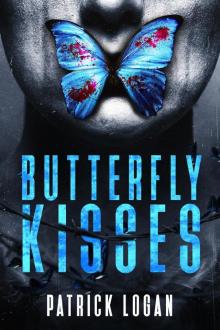 Butterfly Kisses
Butterfly Kisses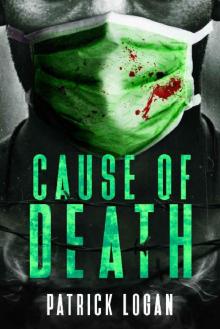 Cause of Death
Cause of Death Shallow Graves (The Haunted Book 1)
Shallow Graves (The Haunted Book 1) Daughter (Family Values Trilogy Book 3)
Daughter (Family Values Trilogy Book 3)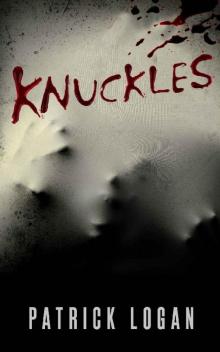 Knuckles
Knuckles Shores of the Marrow (The Haunted Book 6)
Shores of the Marrow (The Haunted Book 6) Human Traffic (Detective Damien Drake Book 5)
Human Traffic (Detective Damien Drake Book 5)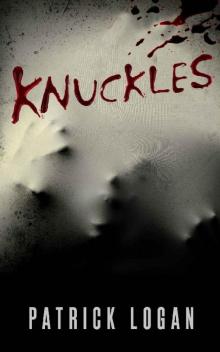 Knuckles (Insatiable Series Book 4.5)
Knuckles (Insatiable Series Book 4.5)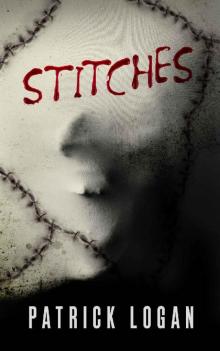 Stitches (Insatiable Series Book 5)
Stitches (Insatiable Series Book 5)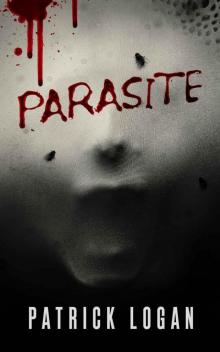 Parasite
Parasite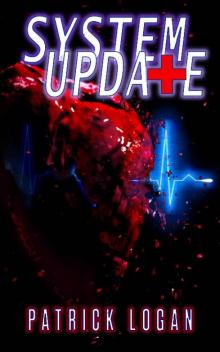 System Update
System Update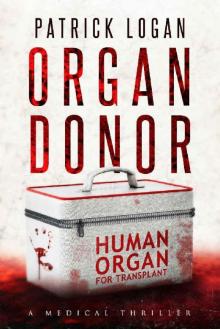 Organ Donor_A Medical Thriller
Organ Donor_A Medical Thriller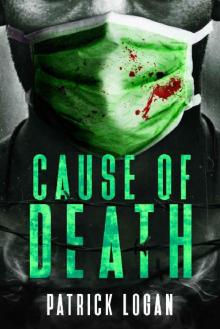 Cause of Death (Detective Damien Drake Book 2)
Cause of Death (Detective Damien Drake Book 2) Daughter
Daughter Seaforth Prison (The Haunted Book 3)
Seaforth Prison (The Haunted Book 3) Sacred Heart Orphanage (The Haunted Book 5)
Sacred Heart Orphanage (The Haunted Book 5) Frozen Stiff
Frozen Stiff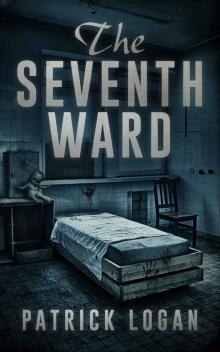 The Seventh Ward (The Haunted Book 2)
The Seventh Ward (The Haunted Book 2) Drawing Dead
Drawing Dead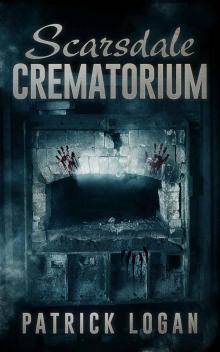 Scarsdale Crematorium (The Haunted Book 4)
Scarsdale Crematorium (The Haunted Book 4)